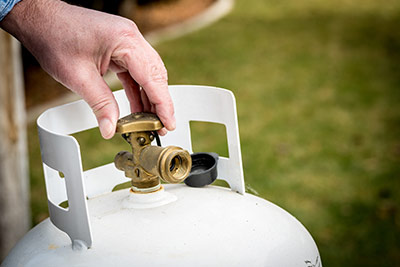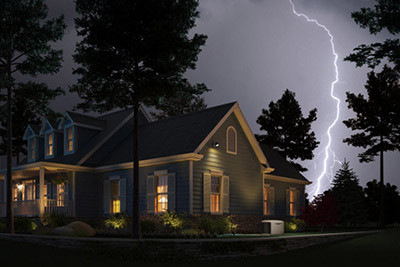Americans have relied on propane as a fuel source for more than 100 years. Even though natural gas has gained popularity in recent years, many people live outside of common service territories for natural gas companies, meaning their homes or businesses can’t be connected to a gas line. And despite natural gas’ popularity, some people still prefer to fuel their homes or businesses with propane. The reasons why are clear!
An Intro to Propane Gas
Why People Choose Propane

Propane is widely available.
The United States is the leading producer of propane, making it extremely accessible in just about any community. The numbers speak for themselves—propane is so widely available that it’s used as a fuel source in 50 million American households. And since propane can be made right here in the USA, we can reduce our reliance on foreign oil.
In order for natural gas to power your home or business, it must be connected to a gas line inside a natural gas service area. If you fall outside of these territories, propane is the perfect fuel to power your life.

Propane is reliable.
Propane can be used to power applications in your home that traditionally rely on electricity, like fireplaces, stoves, and water heaters. When you use propane, you don’t have to worry about a power outage in a bad storm leaving you out in the cold.
Even if you choose to use electric appliances in your home, a propane generator can be a fantastic addition to make sure you stay warm and cozy even in an emergency.

Propane is safe and clean.
Propane is colorless and odorless, although an odorant is added for leak detection. If spilled or released, propane presents no threat to soil, surface water, or groundwater. Propane is touted as an alternative fuel because it is available domestically and has clean-burning qualities.
Propane is recognized as an alternative fuel under the Energy Policy Act of 1992, which aims to reduce U.S. dependence on petroleum and improve air quality.
Frequently Asked Questions
What is propane?
Propane (sometimes called LPG, for liquefied petroleum gas) is a gas that is usually compressed and stored as a liquid in cylinder-shaped pressurized tanks. Propane is nontoxic, colorless, and odorless—although an odor is added so that it can be detected in the event of a spill or leak.
Where does propane come from?
Propane is a byproduct of natural gas processing and/or crude oil refinement. Most propane is produced in the U.S. or Canada.
How much does propane cost?
Propane is priced as most commodities, meaning its cost fluctuates with seasonal demand. Because propane is commonly used to power heat sources, its price often increases in colder months. As a consumer, you can expect propane to be priced per gallon. For context, a standard, 20-lb tank for a grill holds 4.5 gallons of propane.
What can propane be used for?
Propane can be used to power just about anything in your home that is currently powered by electricity: water heaters, dryers, stoves, deep freezers, generators, furnaces, heat pumps, and more. Many businesses also use propane for various equipment needs—particularly in the agricultural and material handling industries.
Learn more about how propane can be used in your home or business.
